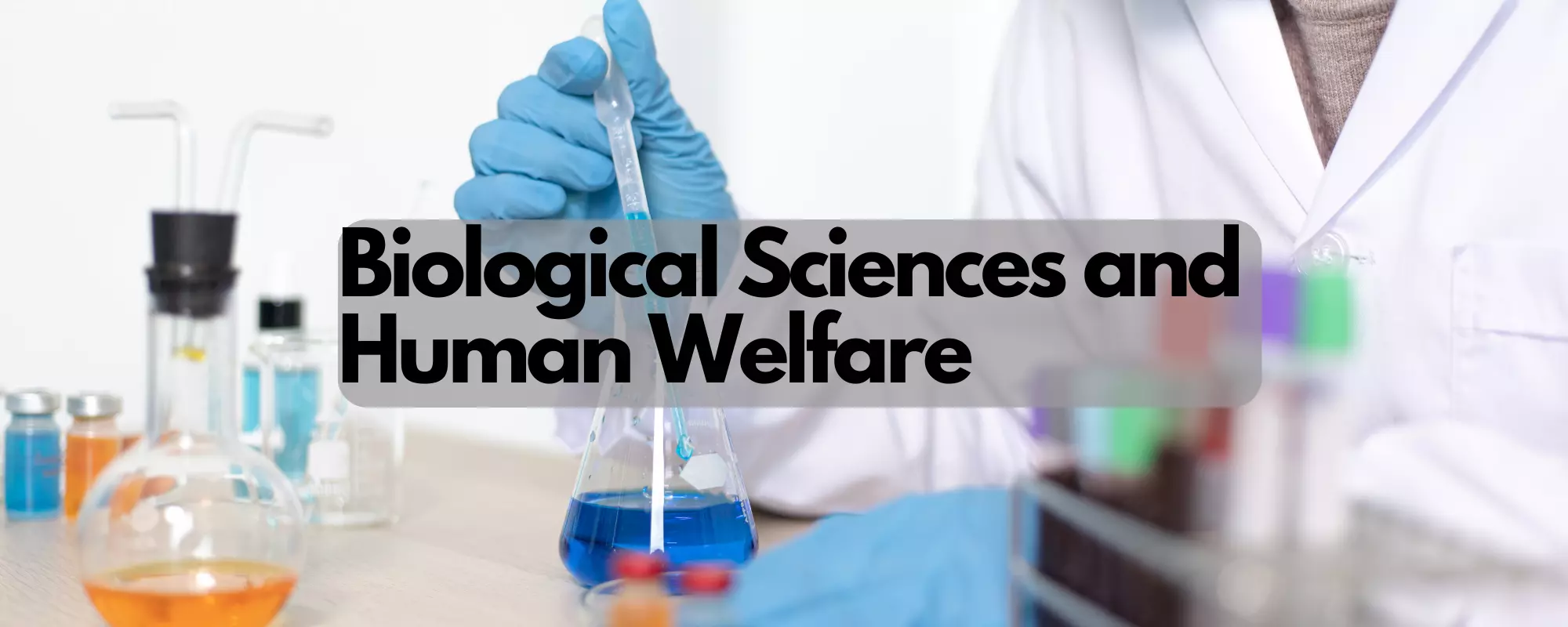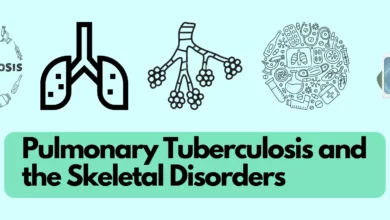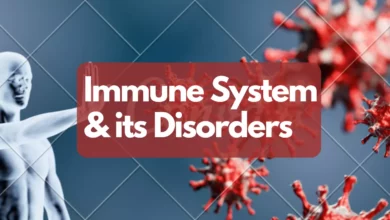The Powerful Role of Biological Sciences in Human Welfare
The theme of this article is to make readers aware of the role of biological sciences in human welfare. The age that is now passing away is largely the age of physical science, with its inventions and discoveries that have given us power over the forces of nature. It is hoped that, after this war, the age of physical science will be replaced by an age of biological science.
Table of Contents
Vaccination and Integrated Disease Management
One of the important contributions of biology to the welfare of mankind is human disease control. Several methods of disease control have been discovered and are being used.

Vaccination and Its Importance
Vaccination is the administration of a vaccine to stimulate the immune system of an individual and develop artificially induced active immunity against infectious diseases. A vaccine may be an intact but inactivated (non-infective) or attenuated (with reduced infectivity) form of the causative pathogens (bacteria or viruses), or purified components of the pathogen that have been found to be highly immunogenic (e.g., the outer coat proteins of a virus particle).
When the body is exposed to weak or dead organisms (vaccines), it triggers the production of antibodies. Since the injected agents are weak or dead, the body does not actually suffer the disease, but an immune response is initiated. Now the body is fully equipped to fight against the actual causative agents like viruses or bacteria that may attack the body later in life. Vaccination is generally considered the most effective method of preventing infectious diseases that were once common in many countries, including polio, measles, mumps, and tetanus.
Integrated Disease Management (IDM) for Human Disease Welfare
Effective control of a particularly disastrous disease or all common diseases of the population can be achieved by using all relevant and appropriate methods of disease control. Such an approach to disease control is known as integrated disease management.
Procedures
Combating disease by utilizing all methods, as and when required, and ensuring the participation of the community in this program is a very useful way of disease control. This requires raising awareness among the community about the severity of the problem, its causes, and its remedies. Public awareness can be ensured by using print and electronic media, arranging seminars in schools and colleges, or engaging in person-to-person communication. In integrated disease management, every available method of disease control is used, including preventive measures, drug treatment, vaccination, and various kinds of therapies.
Objectives
The main objective is to stop the further spread of disease and prevent new onsets. This program has proven to be very effective in eliminating and controlling dangerous diseases in human society.

Vaccination against Polio
Polio is an infectious disease caused by a virus that lives in the throat and intestinal tract. There are two types of vaccines that protect against polio: inactivated polio vaccine (IPV) and oral polio vaccine (OPV). The widespread use of vaccines has led to the complete elimination of polio cases in almost all countries. IPV is a shot given in the leg or arm, depending on age. It may be given at the same time as other vaccines. OPV is given orally to children up to the age of 5 years in the form of drops.
Some Polio Statistics in Pakistan
The annual incidence of polio in Pakistan, which was estimated to be more than 20,000 cases a year in the early 1990s, decreased to around 30 cases and a few cases in 2016 and 2017. This happened due to the regular vaccination program.
Vaccination against Measles
Measles is an infectious viral disease that occurs most often in late winter and spring. Prior to 1963, almost everyone got measles; however, after the measles vaccine became available, the number of cases dropped by 99%, and the epidemic cycles diminished drastically. Therefore, the best prevention of measles is the measles vaccine, known as MMR. The MMR vaccine is a live, attenuated combination vaccine that protects against measles, mumps, and rubella viruses.
Vaccination against Hepatitis
Hepatitis refers to inflammation of the liver and also encompasses a group of viral infections that affect the liver. The most common types are Hepatitis A, Hepatitis B, and Hepatitis C. Vaccines for hepatitis A and hepatitis B are available, but currently, there is no vaccine for hepatitis C due to the structural characteristics of this virus. The Hepatitis A vaccine is made from the inactivated whole virus of hepatitis A. The Hepatitis B vaccine is a recombinant DNA vaccine.
Vaccination against Tetanus (Lockjaw)
Tetanus (lockjaw) causes painful tightening of the muscles, usually all over the body. It can lead to the “locking” of the jaw, making it impossible to open the mouth or swallow. Tetanus leads to death in about 1 in 10 cases. Several vaccines are used to prevent tetanus among people of varying age groups. For example, the DT (diphtheria-tetanus) vaccine is used for children and adolescents, while Td is given to adults. Vaccination is the best way to prevent a tetanus infection caused by Clostridium tetani.
Objectives of the Institutions of the Federal Health Department and UNO working for Integrated Disease Management
Integrated Disease Management is a method to eradicate diseases by using all relevant and appropriate measures of disease control. Combating diseases by utilizing all methods, as and when required, and ensuring the participation of the community in this program is a very effective way of disease control.
This requires awareness among the community about the severity of the problem, its causes, and remedies. The institutions of the Federal Health Department and UNO working for Integrated Disease Management fulfill the objective of raising public awareness and then cooperating with different health departments to utilize all available resources and techniques to combat diseases.
You May Like: The Powerful Immune System, Autoimmune Diseases, and the Complexities of Male and Female Infertility
Conclusion
Biological sciences, through vaccinations and integrated disease management, have revolutionized disease control, preventing the spread of infectious diseases and improving human welfare. By understanding the significance of biology in combating diseases, we can actively participate in protecting ourselves and our communities.
Sources: Nature.com, Hospitals.com.my





